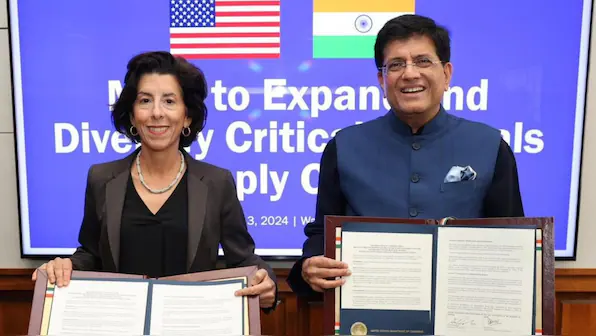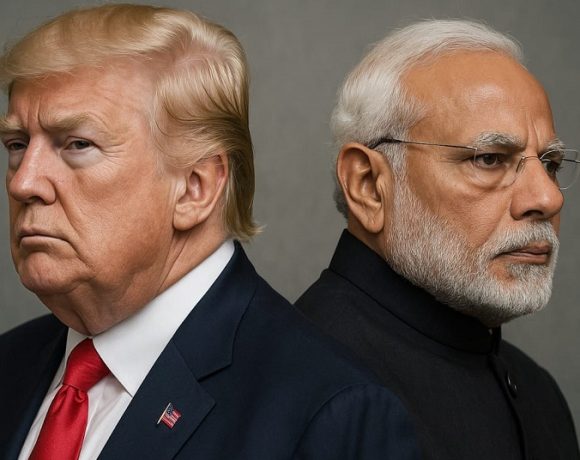
India and US Sign Pact to Boost Critical Battery Mineral Supply Chains
In a significant move to bolster the supply chains of critical minerals essential for electric vehicles and clean energy, India and the United States have signed a memorandum of understanding (MoU).
The agreement, signed on Thursday by Indian Trade Minister Piyush Goyal and U.S. Commerce Secretary Gina Raimondo in Washington, focuses on cooperation in the supply and processing of key minerals such as lithium and cobalt.
Building Resilient Supply Chains
The U.S. Commerce Department stated that the MoU aims to enhance resilience in the supply chains of critical minerals for both countries, ensuring stable and secure access to materials required for advancing green technologies. The agreement outlines several priority areas, including identifying equipment, services, policies, and best practices to promote the commercial development of critical minerals exploration, extraction, processing, refining, recycling, and recovery.
“Priority areas of focus include identifying equipment, services, policies, and best practices to facilitate the mutually beneficial commercial development of U.S. and Indian critical minerals,” the Commerce Department said in a statement.
Multi-Dimensional Partnership
Speaking at the Center for Strategic and International Studies in Washington, Piyush Goyal described the MoU as a multi-dimensional partnership that goes beyond supply chains to include technology development and investment flows to support green energy. He emphasized the need for collaboration not only between India and the U.S. but also with other mineral-rich countries in Africa and South America.
“The U.S. and India will need to include third countries in their engagement to ensure sustainable and reliable supply chains,” Goyal added.
Strategic Importance of the Pact
While the agreement is a step forward in strengthening the critical minerals supply chain, it does not provide the same level of access to the U.S. market as similar deals with other countries. The MoU does not offer India the benefits of the $7,500 U.S. electric vehicle (EV) tax credit, which has been extended to Japan following a deal signed last year between the U.S. and Japan’s Trade Representative office. That agreement was aimed at reducing U.S.-Japanese mineral dependence on China by ensuring stable supplies of key minerals like lithium, nickel, cobalt, and graphite.
However, this MoU sets the stage for further cooperation and potential future agreements that could enable greater participation of Indian companies in global clean energy supply chains. As the world shifts towards greener technologies, the partnership between India and the U.S. on critical minerals is expected to play a pivotal role in supporting the global energy transition.
A Step Towards Green Energy Independence
The agreement between India and the U.S. is expected to promote sustainable practices in the extraction and processing of critical minerals. This, in turn, could help diversify supply sources, reduce reliance on any single country, and ensure a steady supply of essential materials for electric vehicles and renewable energy applications.
With this collaboration, both countries aim to secure a sustainable supply chain for critical minerals, paving the way for advancements in clean energy technologies and further cementing their partnership in achieving shared climate goals.


















